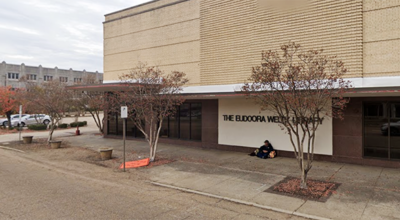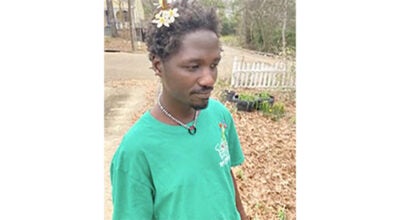Mississippi student becomes first from state university to earn fellowship
Published 6:30 am Sunday, February 5, 2023
Yunfei Wang, a fourth-year graduate student at The University of Southern Mississippi (USM), has been awarded an Advanced Light Source (ALS) Doctoral Fellowship in Residence at Lawrence Berkeley National Laboratory (LBNL) in Berkeley, Calif. Wang is the first student from a Mississippi institution to receive the fellowship.
Wang, a doctoral candidate in the School of Polymer Science and Engineering at USM, will spend her 2023-2024 academic year at LBNL’s synchrotron X-ray facilities at the ALS facility working with beamline scientists Chenghui Zhu and Alexander Hexemer to access the state-of-the-art equipment, techniques, and applications in synchrotron radiation research. She will also receive $20,000 towards her research and stipend.
“It was December 24 when I received this great news,” said Wang. “I was very excited and thought this should be the best Christmas gift I have received.”
The ALS Doctoral Fellowship in Residence is offered every year by LBNL to six Ph.D. students to work at the frontier of synchrotron radiation research for hands-on scientific training and develop professional maturity to complement their doctoral research.
Wang conducted her research under the supervision of USM Professor Xiaodan Gu, focused on developing stretchable semiconductors and high throughput morphology characterization for polymeric materials. During her upcoming residence fellowship, Wang will focus on “developing a high throughput materials processing and characterization system at the ALS.”
Currently, traditional materials development requires a laborious process of synthesis, processing, and quantification of new material, which limits the throughput of the materials discovery rate. To solve this problem, Wang will strive to develop a new high throughput autonomous materials screening system to prepare and characterize polymeric thin film at the synchrotron beamline.
“I want to enrich my hands-on experience for synchroton X-ray scattering and gain more knowledge about that,” said Wang. “Also, I expect we can successfully set up the beamline with automatic and high-throughput sample preparation, characterization, and date analysis to accelerate the development of materials.”
Synchrotron scattering is a powerful structure and dynamic characterization tool that can rapidly probe high spatial and temporal resolution for functional soft and hard materials (within milliseconds for each sample). Combined with the automated sample preparation and AI data analysis system, the sample preparation, characterization, and future design guideline are expected to be achieved automatically.
Wang, a native of Tieling, China, earned her undergraduate degree in engineering at the University of Electronic Science and Technology in China (2016) and her Master of Science at Lanzhou University (2019).
The Advanced Light Source is a U.S. Department of Energy scientific user facility at Lawrence Berkeley National Laboratory. Its mission is to advance science for the benefit of society by providing our world-class synchrotron light source capabilities and expertise to a broad scientific community.
More News






